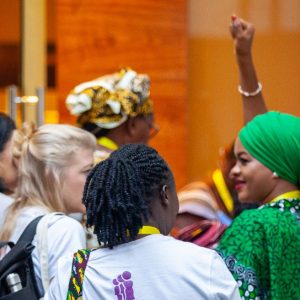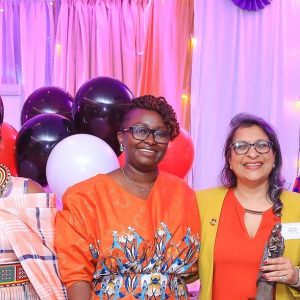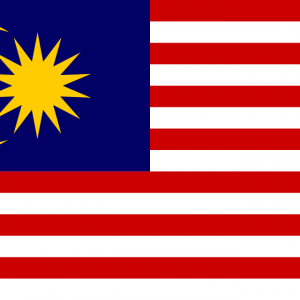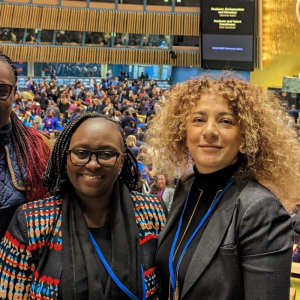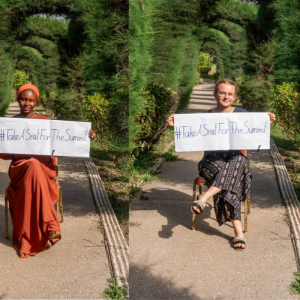Part 2
Recently, the team of social mobilisation volunteers were working with a community that chose not to abandon female genital cutting after they had conducted the village meeting. Men and women from the village listened to the initial presentations of the social mobilization agents and asked questions on the general topics of women’s health and child/forced marriage. When the topic of FGC was broached an hour later, it became apparent that two important authority figures in the village, the village chief and the imam, held differing opinions on the abandonment of FGC.
The village chief stated that he was in favour of abandoning the practice, while the imam declared that he was not. The village chief announced that several years ago he, along with other village chiefs, had been summoned to the police station and told that his and all other villages must abandon the practice of FGC according to the law passed by the Senegalese government in 1999. He shared that while he had been initially hesitant to abandon the practice because he did not understand the reasoning behind it, he was now in favour of abandoning because the social mobilization agents had shared with him the harmful effects it can have.
In contrast, the imam explained that he opposed abandoning the practice because he believed it to be a requirement of Islam. Tostan recognizes that this is a common barrier and so, in anticipation of that, the Kolda team includes two marabouts (Islamic religious teachers); these two religious figures are able to definitively state that nowhere in the Koran is FGC mentioned. However, even after these two marabouts explained that FGC is not a requirement of Islam but rather a traditional practice, the village imam remained opposed to its abandonment.
As in all villages in this region, the village chief and imam hold significant sway over their community. In order for the entire village to abandon the practice, it is essential that those in positions of authority are in agreement with its abandonment.
The men in the village stated that after prayers they would reconvene separately and continue the discussion. If they reached an agreement, they would return to where the social mobilization team was spending the night in the village. If they did not arrive at a consensus they would not come back. This separate meeting was limited to the men because in this village and many others here, men make important decisions on behalf of the village. In speaking to communities about women’s rights and health, Tostan hopes to empower women and encourage them to take part in these important discussions.
By the next morning the men had still not returned to speak with the Tostan team. This meant that the village had not reached an agreement, and therefore was not prepared to abandon the practice of FGC.
Even though it was not the result they had hoped for, the team understood that the village was not ready at that time to abandon FGC. The community would need more time to question the practice and learn why other neighboring communities in their social networks are abandoning it. The team was not deterred though and began to plan how best to follow up in this village. Tostan’s Kolda team supervisor, Thiérno Yaayaa Diallo, returned several days later for a scheduled meeting with the imam, but unfortunately the imam was not present.
After Diallo’s unsuccessful attempt to meet with the imam, he discussed the situation with the Tostan Coordination in Kolda. In instances such as this, Tostan looks at each case and develops an alternative strategy that may be more effective for a particular village. The social mobilization team plans to reach out once more to see if this particular village is willing to open up another dialogue.
In addition, this village will be invited to the inter-village meeting that will include all of the villages that have hosted Kolda’s social mobilization team over the past four months. These meetings give communities an opportunity to exchange their views on FGC and why some have chosen to abandon the practice as well as share their visions for the future of their village.
Promoting the abandonment of FGC is a challenging and delicate task, but many communities are leading the progress towards total abandonment of this harmful traditional practice in Senegal. Through continued outreach and inclusive discussion, communities hesitant to abandon, like the one visited by the Kolda social mobilization team, can decide to join the FGC abandonment movement as well.
Story by Allyson Fritz, Tostan
This blog is part of a series on the Social Mobilisation project that Orchid Project funds in support of Tostan’s long term Community Empowerment Programme. Social Mobilisation is focused on ensuring the acceleration of abandonment of FGC in Senegal. Teams of volunteers who have already abandoned FGC, called social mobilisation agents, visit and create dialogue with inter-connected communities on human rights and the negative consequences of FGC. Their work aims to spread the message of abandonment and encourage others to join them.
Social mobilisation agents are individual members of the community who have been inspired by their understanding that FGC is a harmful practices, and are eager to share their own experiences with others. Often, they are religious, traditional or community leaders who are widely respected and well-connected, active, influential participants.
You can find out more about Social Mobilisation by clicking here. If you would like to support this work, please click here.

